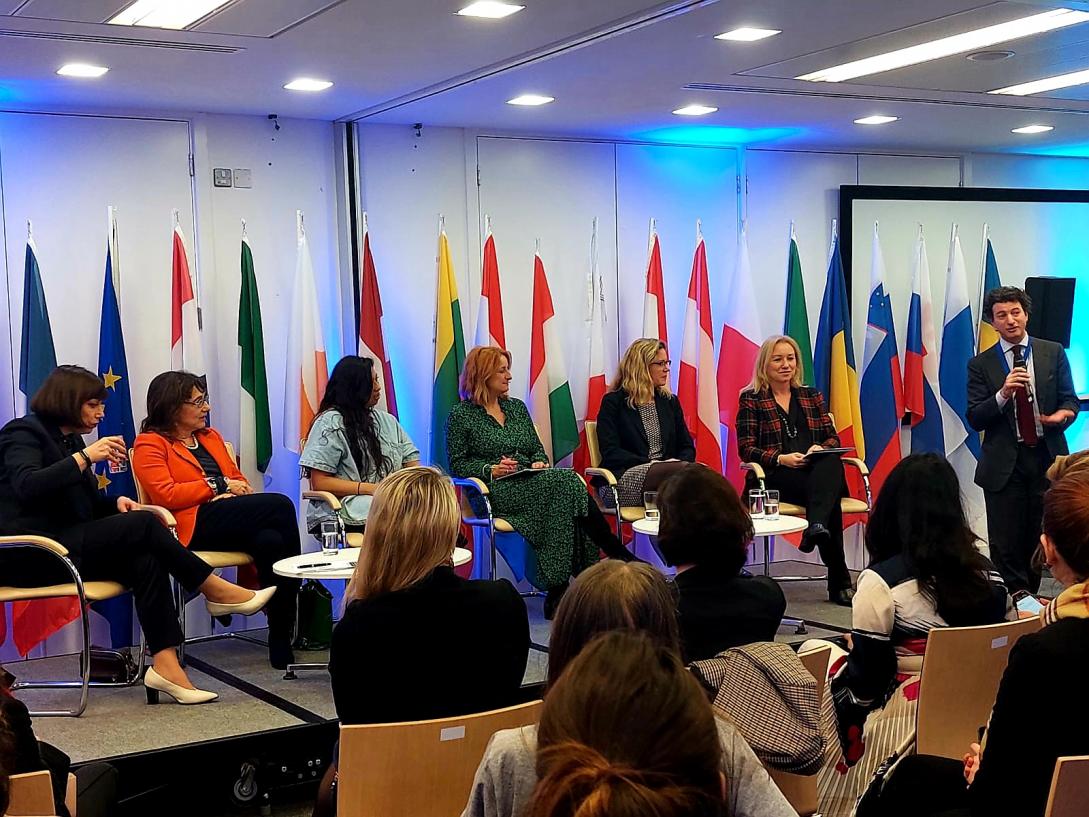Women behind the story – exploring the challenges faced by women in leadership roles across the EU and UK media

The event was moderated by Deborah Bonetti, Director of the Foreign Press Association in London and the speakers were: Beth Rigby, the political editor of Sky News, Alison Phillips, deputy editor-in-chief of the Daily Mirror, Stefanie Bolzen, UK and Ireland correspondent for Die WELT, Megha Mohan, BBC World Service’s first global gender and identity correspondent and Professor Suzanne Franks, formerly of the BBC, now Professor of Journalism at City, University of London.
Alison Phillips reminded the room that although women editors were much in evidence throughout the 70s and 80s, not much by way of culture or attitude changed during their tenure. Something that was possibly due to the ‘Wendy syndrome’, as Megha Mohan offered later on, whereby much like Wendy in the children’s story Peter Pan, a woman was allowed in ‘the boy’s club’ as a special exception to the rule rather than as a natural state of affairs. Phillips expressed hope that the current wave of senior editorial positions held by women, roughly 40%, would result in more concrete improvement in the journey of women through UK newsrooms.
Stephanie Bolzen offered an insight into how gender relations flash-points, such as the question of combining family and career, were greatly improved IninGermany with the introduction of Elterngeld, a generous allowance that allowed both parents to take parental leave. This, Bolzen suggested, has led to a relative gender balance in German media.
Beth Rigby spoke of how she has stepped back from engaging on social media platforms because of personal attacks. Rigby also focused on the nuance between power and authority. Power and status come with being given a prominent role, she argued, but authority is awarded by peers. There is still a long way to go for women not to have to constantly prove themselves in a role.
Megha Mohan explained that there are signs of improvement. She gave the example of her own professional story which was shaped by her three BBC World Service editors, all of them women, two of whom job-share. Mohan highlighted however that there were inequalities to be addressed across journalism, in particular the inequitable representation of ethnic minorities on screen, and even more so in editorial roles.
Professor Franks reiterated that representation mattered also with regards to guests or experts on programmes. She argues that much work stiil needs to be done to address women’s ‘imposter syndrome’ – when female guest are reticent to engage in interviews because they lack confidence.





